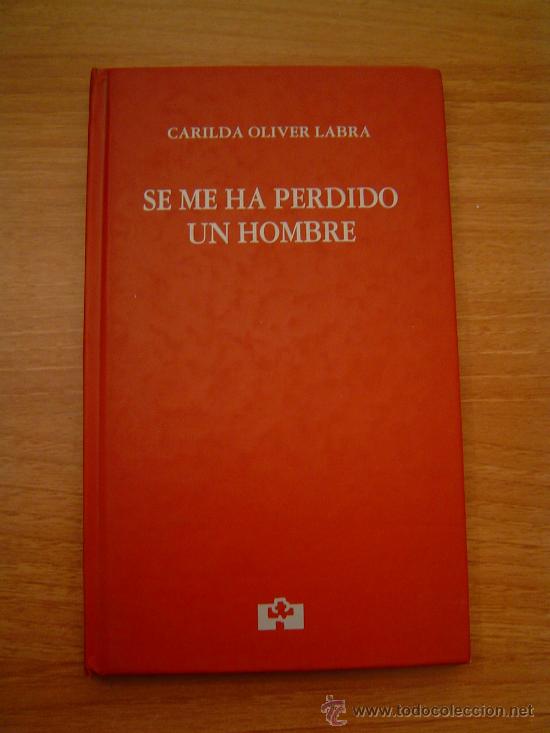4.1.3.3.6 “I have lost a man”, Carilda Oliver Labra (1922 – )

“I have lost a man” is the book by Carilda that best condenses the feeling of love as the leitmotif of all her work, offered from the grief of loss and at the same time the amorous evocation, a reflection of all the emotional learning of the author to deal with the absence of the lover with whom she shared many truly happy years, from a fullness that is not always achieved in a relationship.
The words simultaneously reveal and conceal the profound feeling that overwhelms the author: the desolation of the bond broken by death, a veiled admonition against life and divine designs, based on her particular way of professing faith. The playfulness evident in the choice of vocabulary and the construction of the verses is an attempt to contain the plain expression of that personal abyss that nevertheless emerges, perhaps as a key to the meaning of the lyrical in its relationship with the intimate. The following verses from “Tristeza que por ser mucha” (Sadness that is too much):
“Sadness that is so much
never in verb battle;
modest, how much she keeps silent
Nobody knows or hears.
Pain that is so deep
silence is fitting above him
and is spent in rhyme
while I hide it inside.”
All the poems revolve around this same topic, sometimes paraphrasing transcendent works of Spanish lyric poetry, such as the sonnet, attributed to different authors, of “No me mueve, mi Dios, para quererte” (It does not move me, my God, to love you), the one by Carilda with the title “No me canso, mi amor, ya de quererte” (I do not tire, my love, of loving you), in which she adapts her own emotional experience of love in the definitive juncture of death to the style and sensibility of the aforementioned poem.
As is typical in her work, the simplest, the everyday, inspires a lyrical display that rises to higher peaks. In this case, she can also make poetry out of what could be gloomy, such as the autopsy of a loved one. However, for Carilda, her entire environment of reality has a similar poetic level. She does not establish hierarchies regarding the participation of reality in beauty, and thus also projects love.
Although sonnets and rhymed poems have traditionally been preferred by critics in the specific case of Carilda, in this text some free verse pieces achieve transcendent lyrical authenticity, from emotion, as is the case of “The Word”, a somewhat more sober tone than other of his pieces, in which, if there could be any superficiality, it is that of one who has already descended to all abysses:
“I would like to write about interesting things
that are part of the world,
that make men happy,
of that discovery
or perhaps of mysterious matters to come;
but only the word comes to me
that overwhelms because of its weight,
that shakes,
that makes the icebergs spin,
the cracks;
and beautiful,
pure,
rise from your corpse.”








